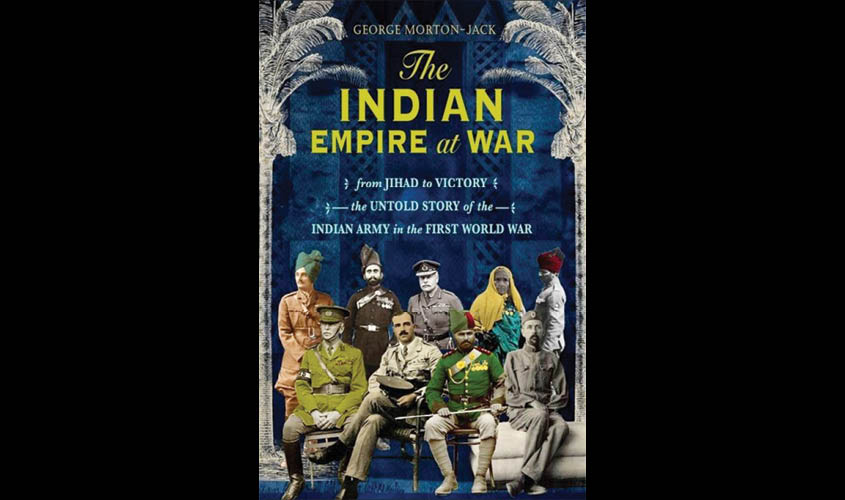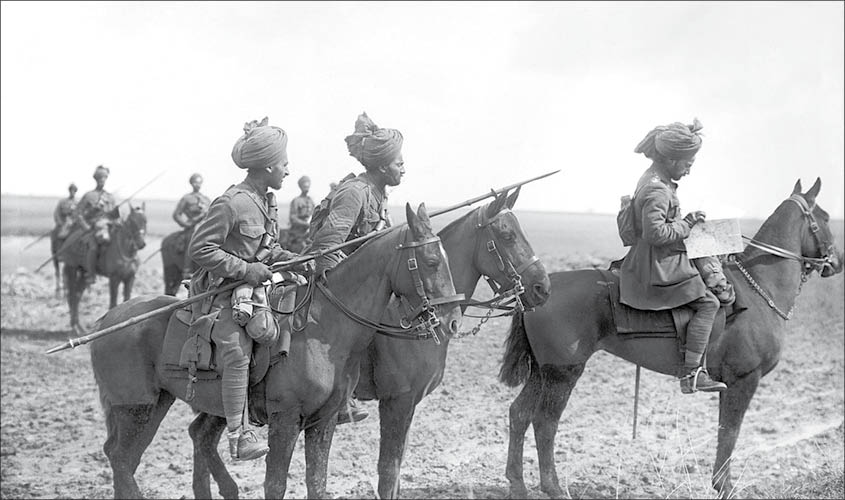‘We were slaves’, as one Punjabi veteran, Sujan Singh, put it bluntly. The transcripts bleed with the Indian servicemen’s wartime pain.
In 2014 for the centenary of the First World War’s outbreak, the conflict’s 1.5 million Indian servicemen— Hindus, Sikhs and Muslims of the British Indian Army, 34,000 of whom were killedon the battlefields of Europe, Africa and the Middle East—were widely commemorated as heroes, bothofficially and in the media.
Since then, the British themselves have been more in the spotlight. Shashi Tharoor’s Era of Darkness: The British Empire in India (2016) has retold the plunderand perfidies of colonial rule, not least Britain’s extraction of Indian resources to help win the First World War, in cash and kind worth some £50 billion in today’s money.
Now, as the hundredth anniversary of the war-ending Armistice looms, Tharoor’s Era of Darkness raises a difficult question: if the Indian troops of 1914-18 were fighting for the British, what exactly were they fighting for?
As part of the 2014 commemorations, India’s Ministry of External Affairs sponsored a series of overseas events to remember, as an official centenary pamphlet proclaimed, “the sterling contribution made by the Indian Army towards the establishment of world peace”. While this view of the Indian troops honoured their sacrifices for the Allied democratic cause, it was sharply at odds with how Indian politicians of the colonial era had seen them.
Mahatma Gandhi enthusiastically supported the British war effort up to 1918, including Indian Army recruitment, in the hope of self-rule in return. But the British betrayals of 1919, from the Jallianwala Bagh massacre—where Indian troops pulled the triggers—to paltry constitutional reform, dramatically changed his standpoint on the British and their Indian Army.

British rule, he said, “represents Satanism…repression and terrorism. [It] seems an evil thing [and] the height of tyranny”. He turned on the Indian troops for backing the British both in the World War and at home, damning them for taking up “the sword of the hireling”, “doing so merely for money”. “A loyalty that sells its soul is worth nothing”, he concluded in disgust, “I refuse to call the profession of the sepoy honourable… The sepoy’s services have more often been utilised for enslaving us than for protecting us.”
But what of the Indian troops’ own views? These have long been something of a mystery. The Indian combatants of 1914-18 were largely illiterate, hailing primarily from the poverty-stricken villages of colonial Punjab and other rural northern areas. Accordingly, they produced noblest-selling war poets or memoirists in the western tradition like Wilfred Owen or Siegfried Sassoon to tell of their trench trauma.
The major wartime record of the sepoys’ thoughts is their letters home from the western front, usually dictated to scribes; they are preserved in colonial censors’ translations at London’s British Library. Yet these letters are not particularly representative: only 8% of the Indian solders served in France. Nor are the letters as forthright as they might seem. Much of their original meaning was lost in translation, and their authors were reticent on the British, wary of putting on paper things the censors could construe as subversive.
The Indian servicemen’s richest memory bank was at home: their villages’ oral traditions. Up to their final days in the 1970s or so, the veterans spoke of the laam or “long war”, as it was known in Punjab, in ways unseen in their censored letters. This is explored in my new book The Indian Empire at War, the first global narrative history of the Indian Army’s part in Allied victory.
My research has centred on long lost interviews of Indian veterans in old age, many of them Sikhs, recorded by an Indo-American research team in the early 1970s. I found the interview transcripts gathering dust in the United States at the home of the team’s leader, who passed them on to me. Their forgotten voices are now published for the first time in The Indian Empire at War, revealing the Indian troops’ feelings as never before.

“We were slaves”, as one Punjabi veteran, Sujan Singh, put it bluntly. The transcripts bleed with the Indian servicemen’s wartime pain, echoing British demands that they make the ultimate sacrifice on the battlefield while being humiliated as racial inferiors, sometimes brutally so, denied the rights of the white soldier. The Indian recruits were racially segregated in their camps, ships and railway carriages on the way to the fronts; they had lower pay; they could be subjected to physical punishments illegal for white troops as inhumane; they could only hold regimental commands permanently inferior to their British officers; they had less home leave; and they had no vote in domestic elections.
“We had many ideas in our hearts but could not do anything. We had to be loyal”, recalled the veteran Nagina Singh. For him, like the sepoys in general, loyalty was primarily givenfor a wage and pension to help his family survive the rural economy. “I joined the Army to earn my bread”, acknowledged M.L. Dubey, a veteran from Gwalior.
The veterans also spoke of bringing home from the war new ideas of freedom from colonial rule. “I felt that Indians should also enjoy freedom like the people of other countries”, said Narain Singh, a Punjabi who from 1914 served in Arabia, the Red Sea, Gaza, Palestine and Syria. “When we were in France we felt that the French people were so lucky and enjoying their freedom”, explained another Punjabi, Mitt Singh. “So we also felt that India should be free, this war showed us the right path.”
The veterans’ voices as old men should remind us that although they may have fought for democracy in their youth, they did so with heavy hearts—for the pay, as Gandhi said, of a tyranny.
George Morton–Jack’s The Indian Empire at War: From Jihad to Victory, the Untold Story of the Indian Army in the First World War (Hachette, India) is published on 11 November 2018 and is available at www.amazon.in. Morton-Jack is a British historian. He studied at Oxford University and wrote his first book on the First World War for Cambridge University Press.

